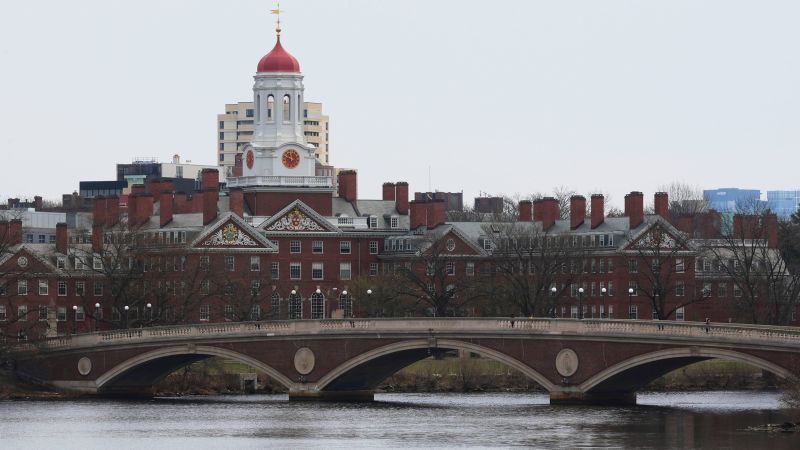The Trump administration's decision to revoke Harvard University's ability to enroll international students signals a significant escalation in the ongoing conflict over the Ivy League institution's autonomy. This move by the U.S. Department of Homeland Security has far-reaching implications, impacting a substantial portion of Harvard's student body. With nearly 28% of its enrollment comprising international students, the ban on enrolling foreign students and the requirement for existing ones to transfer or risk losing their legal status could have profound consequences.
Homeland Security Secretary Kristi Noem's directive to terminate Harvard's Student and Exchange Visitor Program certification is rooted in the administration's claim that the university has failed to comply with requests for information on the behavioral records of international students. These demands are framed within the context of alleged "pro-terrorist conduct" at campus protests and accusations of fostering violence, antisemitism, and alleged cooperation with the Chinese Communist Party.
Harvard, in response, swiftly condemned the administration's actions as "unlawful" and expressed a firm commitment to hosting international students and scholars from diverse backgrounds. The university, known for its global influence and academic prowess, highlighted the enriching contributions of international members to its community and the nation at large.
The timing of this decision, amidst broader conversations on campus safety and accountability, underscores the complexities at play. The administration's insistence on obtaining detailed records related to international students' activities and behaviors reflects a broader push to address concerns about campus safety and adherence to legal requirements. By invoking the loss of certification, the administration aims to send a clear message about enforcing laws and combating antisemitism both on campuses and in society.
Amid these developments, concerns have been raised about potential impacts on Harvard's academic and research mission. The revocation of the student visa program adds to a growing list of punitive actions taken against the university, including the freezing of federal funding and investigations across various government departments. The administration's stance aligns with a broader crackdown on policies related to Diversity, Equity, and Inclusion cDEIc in academic institutions.
Harvard's response, which includes offering international students the option to enroll in both Harvard and a foreign university as a contingency plan, signals a strategic approach to navigate the challenging regulatory environment. However, the stakes remain high for the affected students and the broader university community as they grapple with the implications of this decision.
As this situation continues to unfold, it raises broader questions about the intersection of academic autonomy, government oversight, and international student enrollment. The actions taken by the administration against Harvard underscore the complex dynamics shaping higher education policy in the current landscape. The repercussions of this decision are likely to reverberate beyond Harvard, serving as a precedent for how academic institutions engage with government regulations and navigate the changing landscape of international education.

